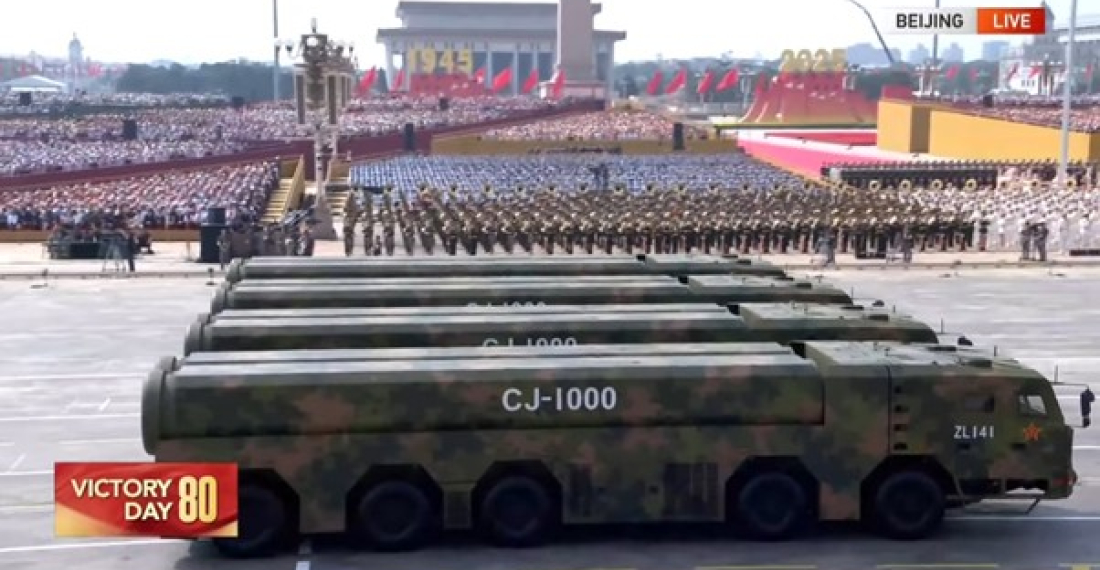A massive military parade in Beijing, a tough speech by leader Xi Jinping, and an audience led by the leaders of like minded countries, including Russia, Iran and North Korea, was how China on Wednesday, 3 September, marked the 80th anniversary of its victory over Japan in WWII.
President Xi welcomed North Korea’s Kim Jong Un with a long handshake, then moved on to greet Russia’s Vladimir Putin before all three walked together to watch the parade. This event was not just a display of troops and weapons but also of friends and allies. This was the first time all three leaders have been seen in public together.
The parade was a choreographed spectacle of precision, power and patriotism.
The choir stood in perfectly even rows, the troops goose stepped past in unison and each strike of the ground echoed through the stands of 50,000 guests in Tiananmen Square.
Then came the big weapons - a new ICBM, laser weapons and robotic wolves. The parade finished with a crowd pleasing fly past before thousands of doves and balloons were released into the skies over the capital.
The BBC noted
This display to mark the 80th anniversary of the end of the Second World War, was not just a look at where China has been, or how far China has come.It showcased where China is going.
The parade saw the Aerospace Force, Cyberspace Force, and Information Support Force marching for the first time.
One key takeaway from the parade is that China has been able to quickly produce a diverse range of weapons, say experts. Ten years ago, the kind of military technology they put on show tended to be "rudimentary copies" of much more advanced equipment invented by the US, says analyst Michael Raska, assistant professor at Nanyang Technological University, quoted by South China Morning Post.
But today's parade showed a much more innovative and diverse range of weapons, particularly in its drones and missiles. China's top-down structure and significant resources enables it to churn out new weapons in huge quantities much faster than many other countries including the West.
Two things will send shivers down western diplomatic spines writes the BBC
One is the speed with which China is filling the vacuum left by America’s withdrawal from international norms and institutions. A, Chinese-led world order, one where territorial integrity and human rights are valued less than raw power and economic development, might prove uncomfortable for many western countries.
And second, the way harsh US tariffs have pushed India, the world’s biggest democracy, so quickly into the warm embrace of China, the world’s biggest autocracy, will also be of concern.
One small crumb of comfort for the West is that the so-called “axis of upheaval” on show in Beijing is not united - and India, in particular, is still at odds with China over territorial and other disputes.
The bottom line is that the economic nationalism and disruptive diplomacy of Donald Trump’s America is giving China a huge diplomatic opportunity and it’s one Xi is seizing with open arms with his summit and parade. In his address, Xi called on Chinese people to remember the victory in WWII.
He added
"humanity rises and falls together" and that China is "never intimidated by bullies".
source: commonspace.eu with BBC (London); South China Morning Post (Hong Kong); and CCTV (Beijing).
photo: The military parade in Beijing on 3 September 2025 (screengrab from CCTV).







